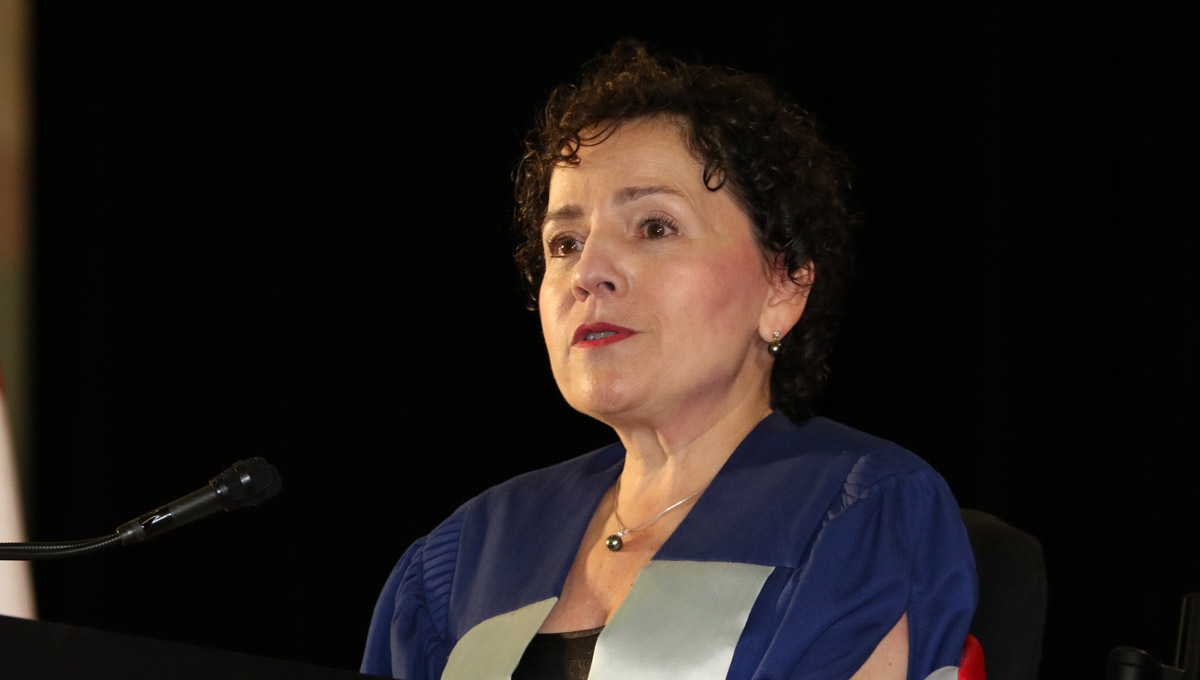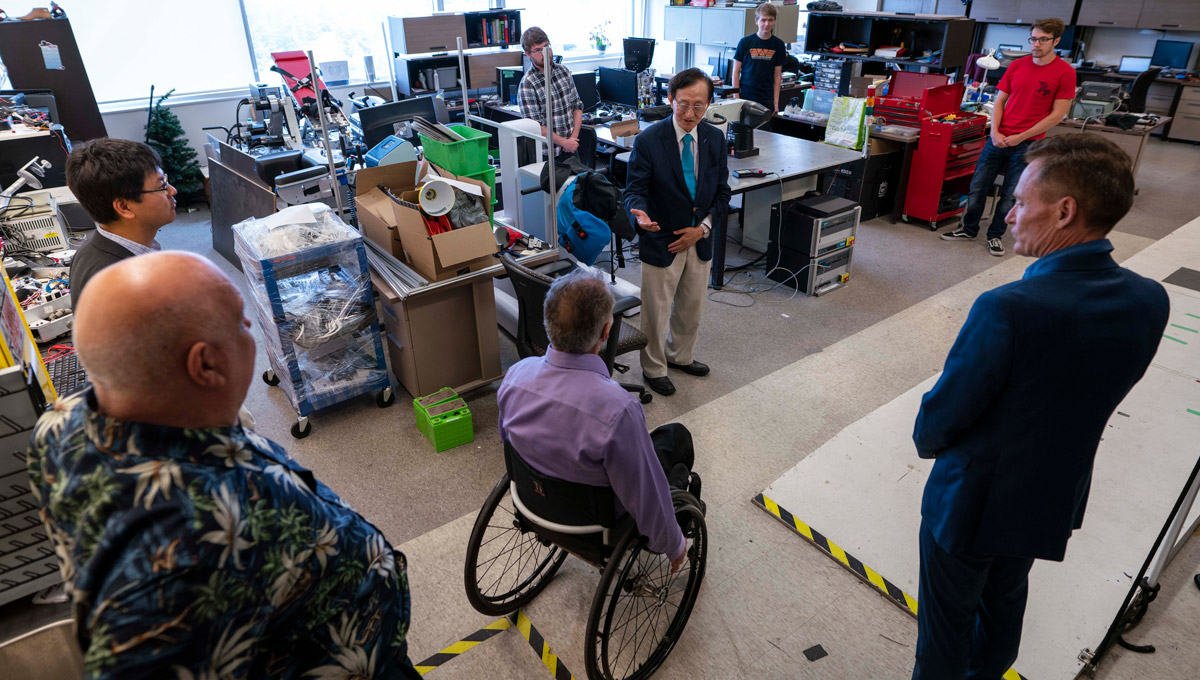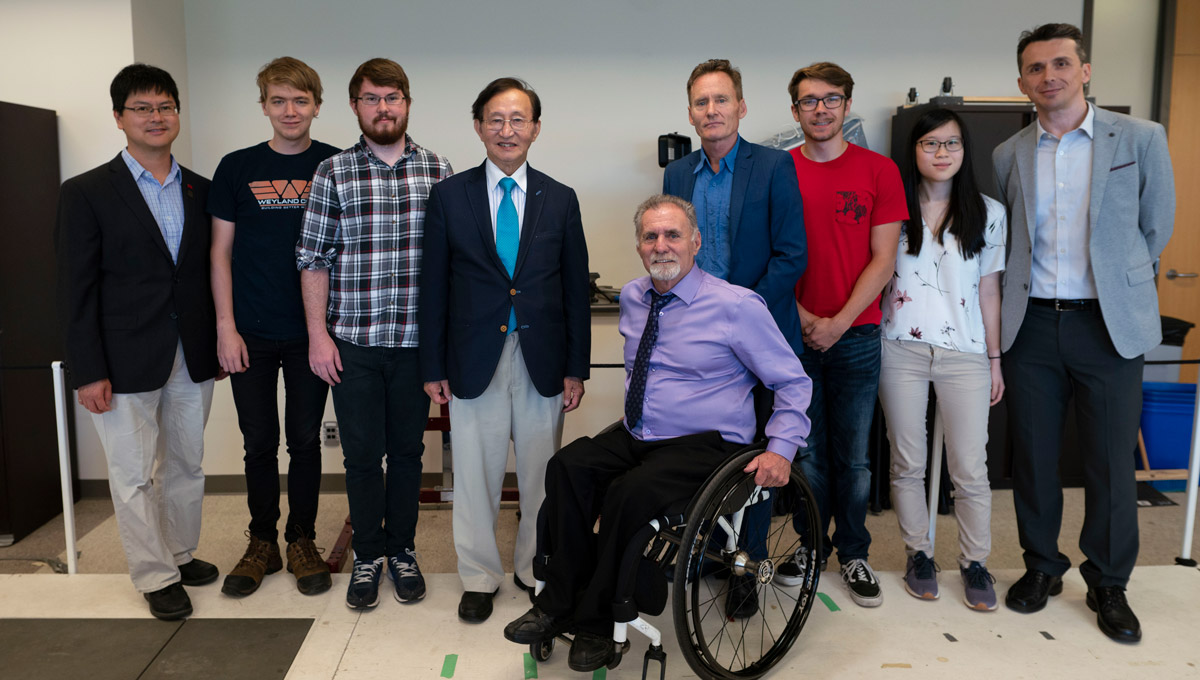Building on its reputation as Canada’s most accessible university, Carleton University is launching the Canadian Accessibility Network – the first entity of its kind in the country.
The announcement follows the historic passage of the federal government’s Bill C-81, the Accessible Canada Act. The bill sets groundbreaking accessibility standards for the Government of Canada and organizations under its jurisdiction to ensure that public spaces, workplaces, employment, programs, services and information are accessible to everyone.
“As a campus community that has been dedicated to supporting people with disabilities since our inception, we are excited to see the Accessible Canada Act bring accessibility to the top of our national agenda,” says President Benoit-Antoine Bacon.
“Carleton exemplifies the many ways accessibility can be embedded into everything we do, but we know there is so much more we can do within our own community and beyond. We are excited to launch and lead the Canadian Accessibility Network and we call on all our current and future partners to work together, through the network, to create a more accessible and inclusive world.”

Yazmine Laroche, deputy minister, Public Service Accessibility, Treasury Board Secretariat.
“When talented people work together for a common cause, great things can happen, and that is the promise of the Canadian Accessibility Network,” says Yazmine Laroche, deputy minister, Public Service Accessibility, Treasury Board Secretariat. “I am so excited by the possibilities the network will provide for collaboration on removing barriers and building greater accessibility for Canadians where they work, learn, play and live. Congratulations to Carleton University and all of the partners of the network.”
The Honourable Raymond Cho, Ontario’s Minister for Seniors and Accessibility, expressed support for the foundation of the Canadian Accessibility Network at Carleton. “I am proud that this initiative is spearheaded in Ontario, where accessibility is a priority as exemplified by the Accessibility for Ontarians with Disabilities Act (AODA),” said Cho. “I am equally pleased that such an ambitious undertaking is led by Carleton University, the most accessible university in Canada. My ministry is looking forward to working alongside Carleton as a Canadian Accessibility Network partner to advance accessibility in Ontario and Canada.”

Ontario’s Minister of Seniors and Accessibility, Raymond Cho, toured Carleton University in 2018 to get an inside look at how it is pushing the boundaries of accessibility and inclusion.
Carleton University has a long history in accessibility and is regarded among the most supportive universities in North America for students with disabilities. For example:
- The Research, Education, Accessibility and Design (READ) initiative joins expertise from across all academic disciplines and service departments at Carleton with individuals and organizations committed to accessibility. READ will serve as the headquarters for the new Canadian Accessibility Network.
- Through its Research and Education in Accessibility, Design and Innovation (READi) training program funded by the Natural Sciences and Engineering Research Council, Carleton brings together students from across more than seven disciplines and three universities to use theory and practice to develop accessibility solutions.
- Carleton University’s Disability Research Group is an interdisciplinary team from scholarly and professional backgrounds that aims to raise awareness about disability and technology through virtual exhibits and multidisciplinary research.
- The Transforming Disability Knowledge, Research and Activism project, funded by the Social Sciences and Humanities Research Council, focuses on engaging women and girls with disabilities in disadvantaged communities in Vietnam.
- The Paul Menton Centre (PMC) fosters equal access to university experiences for students with disabilities while maintaining academic standards by providing academic accommodations and support services.
- From Intention to Action (FITA) supports students to manage their mental health and improve academic performance by helping them navigate personal stressors impacting their education.
- Led by Carleton, the David C. Onley Initiative for Employment and Enterprise Development is an Ontario government-funded partnership between four post-secondary institutions in Ottawa dedicated to supporting students with disabilities in their employment readiness and career aspirations.
By leveraging strengths of individual stakeholders within a national network of partnerships, the Canadian Accessibility Network is creating collective regional and national capacity. A number of organizations and individual stakeholders from across Canada representing diverse sectors have already expressed interest in the Canadian Accessibility Network, such as the Rick Hansen Foundation, Ontario Ministry for Seniors and Accessibility, National Educational Association of Disabled Students, and several universities and organizations across Canada.
Through the Canadian Accessibility Network, Carleton will work with partners to promote a more accessible and inclusive Canada and build on the goals of the Accessible Canada Act.
To learn more about the Canadian Accessibility Network, visit: Carleton.ca/read/can.

Wednesday, June 26, 2019 in News Releases
Share: Twitter, Facebook



